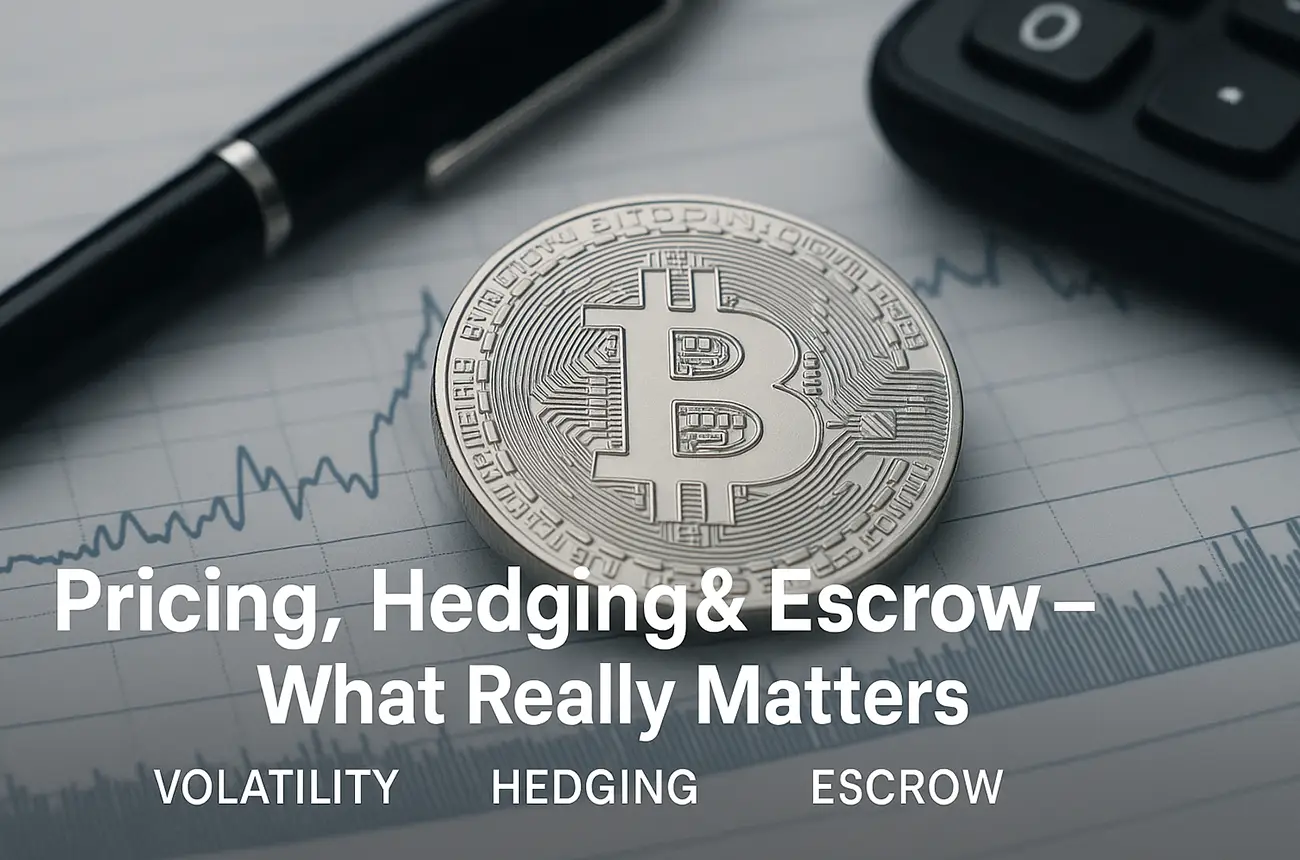Complex Licensing Experts

Services
Resources

Dubai and Abu Dhabi have become global hubs for real estate innovation, with cryptocurrency increasingly emerging as a funding source for property transactions. Yet, despite the headlines, the reality is clear: you can fund a property purchase with crypto, but the settlement and registration must occur in AED. The compliant pathway runs exclusively through a Virtual Assets Regulatory Authority (VARA)-licensed Virtual Asset Service Provider (VASP) or over-the-counter (OTC) desk that performs the crypto-to-fiat conversion.
For investors, developers, and brokers, this is not just a technicality—it is the difference between a legally recognized transaction and regulatory exposure. SecureVisa Group (SVG) ensures these transactions are structured, licensed, and audit-ready under UAE’s multi-regulator framework.
VARA governs virtual asset service providers operating in Dubai (except DIFC). Any crypto-to-AED off-ramping must be executed through a licensed exchange or OTC provider. VARA’s rulebook mandates robust AML/KYC, on-chain transaction monitoring, and attestation of funds provenance.
The Securities and Commodities Authority (SCA) oversees securities and crypto-related activities outside DIFC/ADGM. For structured real estate tokenization, secondary trading, or brokerage models, SCA approval is mandatory.
The Dubai Financial Services Authority (DFSA) regulates firms in DIFC under modules such as GEN, COB, and AML. Virtual Asset Tokens (VATs) may be recognized for use in DIFC, provided firms operate under appropriate DFSA authorizations.
The Abu Dhabi Global Market’s Financial Services Regulatory Authority (FSRA) has one of the most mature frameworks, covering crypto exchanges, custodians, and OTC desks. FSRA’s virtual asset regime ensures institutional-grade investor protection for large-scale transactions.
The Central Bank of the UAE (CBUAE) enforces the Payment Services Regulation and Stored Value Facilities framework. All settlement and escrow arrangements for property sales must be conducted in AED through licensed banks.
The General Commercial Gaming Regulatory Authority (GCGRA), though not directly tied to real estate, signals the UAE’s broader direction of sector-specific regulators introducing strict compliance obligations.
For developers targeting both institutional buyers and retail investors, dual licensing strategies (e.g., VARA + SCA, or FSRA + CBUAE) may deliver compliance certainty and transaction scale.
Every counterparty must pass enhanced KYC, with on-chain provenance reports generated by the VASP. This ensures legitimacy of source-of-funds, eliminating exposure to illicit wallets.
ITSEC, SVG’s cybersecurity arm, implements penetration testing, wallet security reviews, and blockchain monitoring to safeguard against fraud, hacks, and reputational risk.
Transaction reporting includes timestamped conversion records, escrow confirmations, and VASP attestations. These documents must be retained for regulatory inspections by VARA, DFSA, or FSRA.
Integrated onboarding with VerifiX and Sumsub accelerates AML/KYC checks while ensuring compliance with global FATF standards.
Escrowed crypto holdings are secured via Fireblocks or Ceffu custody solutions, ensuring institutional-grade risk controls before AED conversion.
Cloud-based transaction monitoring and audit logs on Azure deliver transparency, immutability, and regulator-grade reporting.
Beyond direct property purchases, developers are experimenting with fractional real estate tokens regulated under the SCA framework—enabling global capital inflows.
With GCGRA’s oversight, real estate-linked gaming and metaverse projects using tokenized assets must align with both gaming and crypto frameworks.
Institutional buyers may enter UAE real estate through crypto-focused real estate funds, requiring DFSA/FSRA approvals and robust custody frameworks.
SecureVisa Group (SVG) is the UAE’s most trusted partner for multi-regulator licensing, compliance, and audit readiness. With ITSEC as its cybersecurity and technology backbone, SVG delivers:
Crypto can be the source of funds, but AED remains the only means of settlement for real estate in the UAE. The pathway is not speculative—it is defined by regulators, executed by licensed VASPs, and documented through escrow banks. By addressing volatility, fees, compliance, and cybersecurity, buyers and developers can achieve seamless execution.
With SVG’s multi-regulator expertise and ITSEC’s technology safeguards, real estate stakeholders can embrace crypto funding without execution risk or regulatory exposure.